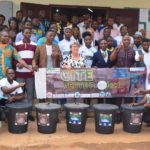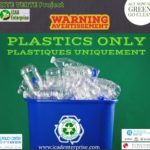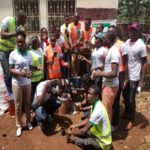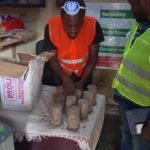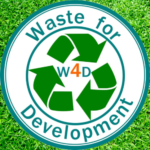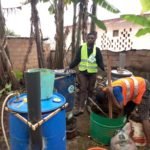
Put Your Worries Away for Now
#CiteVerteproject
Are You Ready for the CITE VERTE Project?
Countdown is finished!
“,”serverSync”:”2020/02/14 19:22:19″,”separator”:””}’>
Facebook
Twitter
Google-plus
Project Plan
This project plan will define the project, lay down the goals and objectives of the CITE VERTE Project. This plan will also serve as a contract between the Project Manager, Executive Sponsor, Project Team and other management of the enterprise associated with and/or affected by the project.
Background
Globally, population growth, together with economic growth and associated consumption behaviour, has resulted in a significant increase in solid waste production. Collection schemes are an essential first step in any waste management process and play a key role in its overall performance. They determine the composition of waste streams and therefore their suitability for downstream pre-treatment, sorting and recovery operations. In addition, efficient schemes, approved and supported by waste owners, help solve litter issues. Ideally, these schemes should share the same objective of maximizing recovery of recyclables and recovering value from waste by diverting this valuable resource from land-filling. As recyclers, sorting cost us 10% of our recycling resources and is even worse with other recyclers in Cameroon. Pre sorting of municipal waste remains an ever increasing problem in Cameroon, which we think needs to be looked upon.
Project Approach
We will use an agile methodology in managing this project, as a team will monitor and report the project activities in short iterations. After the Thrash separators will be handed over to the hostels concerned, the team will visit them every 4 weeks to assess the state of the separation with pictured evidence. At the end of the 5th week, the best hostel will be given an award during the ‘green carpet ceremonies’. However, the wastes will be collected and recycled into other outlets at our recycling center.
Goals and Objectives
Goal:
Enforce the culture of pre-sorting of solid wastes in Dschang Municipality.
Objectives:
- Reduce the workload of recyclers, as they will be served with already sorted wastes.
- Use SDG 13 to support SDG 4 as education will be promoted via discount photocopies in exchange for plastics as well as discount photocopies to students living in our partner hostels.
This project is expected to implement the culture of separating recyclable from non-recyclable wastes in student hostels and eventually in households, which will be the first of its kind in the town of Dschang. With this project, recyclers will find it easy to carry out their tasks, which will go a long way to reduce the quantity of landfill wastes. On the other hand, students who comply will benefit from scholarship, discount photocopies and free training. We are expecting to have a scenario where thrash will be seperated in all student hostels in Dschang by December 2020, for this expectation to be met, a team will be conducting a visit to all hostels every 4 weeks to assess the situation and at the end, the best hostel will have a cash prize, while students living in the hostel will have 50% discount in their photocopies and this will be ongoing from February 21st 2020 to December 31st 2020.
Scope
This project primarily concerns solid waste management in the Dschang municipality, specifically sensitizing and instituting the culture of separating biodegradables from nonbiodegradables. However, as recyclers, our point of interest is collecting plastics and recycling them into pavements, roof tiles and eventually medical prosthesis
Deliverables List
| Name / Stage | Assigned to | Quality Review Date | Acceptance Date |
|---|---|---|---|
| Initiation(Project plan) | The Team | 4/10/19 | 15/12/19 |
| Mapping of hostels | Nguefack Jesper | 30/11/19 | 16/12/19 |
| Stakeholders Engagement | Nguefack Jovis | 10/01/20 | 30/01/20 |
| Planning | Kemshi Suleman/ Rosalie Tessa / Nguefact Jovis | 30/12/19 | 28/01/20 |
Milestones
- Delimitation of the Project area (virtual representation).
- Authorization to run the project.
- Communication needs.
- Engagement of beneficiaries.
- Purchase of Materials.
- M&E.
- Recycling the wastes at our innovation center.
- Financial exigencies.
Partners
- Policy Center for the New South.
- YALI-Alumni Innovation fund.
- Tony Elumelu Foundation.
- AHVEC- France.
- Allaince Franco-Camerounaise – Dschang.








